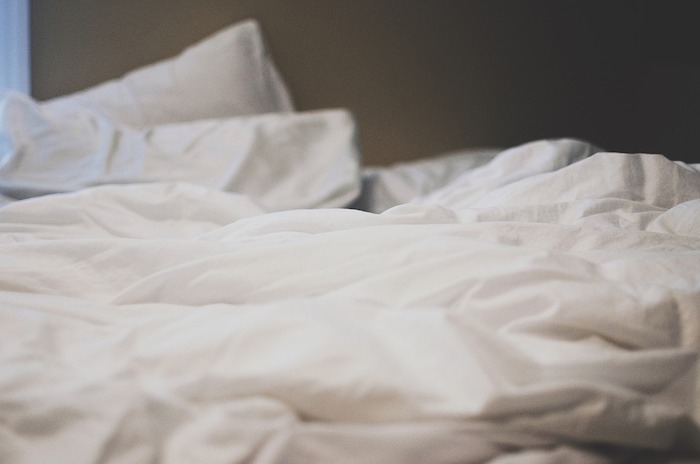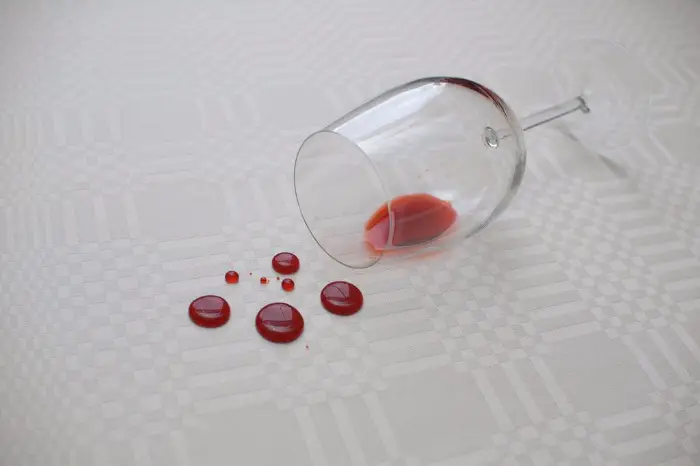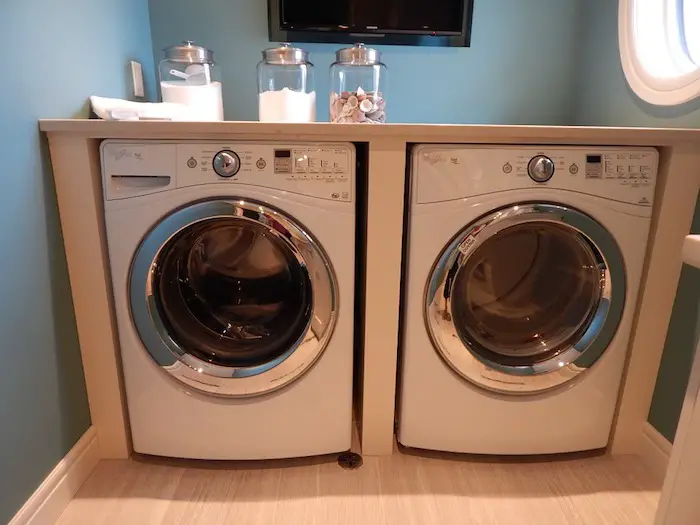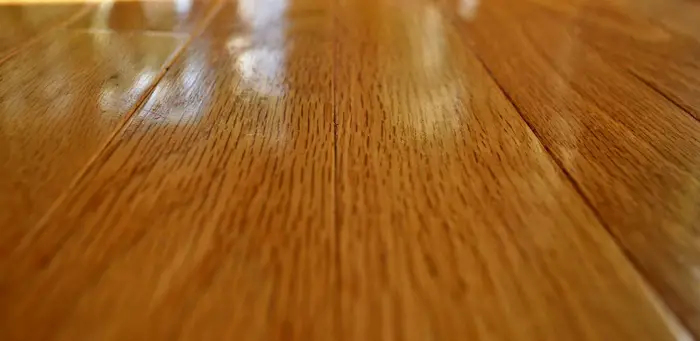Can You Wash Bed Sheets with Clothes?
The bed is one of the peaceful and calming areas that everybody wants to retire to after a long day. You have been working hard throughout the day whether at the office or in the field, and you do deserve some comfort in some perfectly fresh, clean and cozy sheets. To maintain your sheets clean and fresh always, it is important to know how to wash them and avoid certain mistakes. If you are used to stuffing everything together in the washer, this article is for you.

Should you wash your bed sheets together with other clothes? The short answer is no. Absolutely not. While you may assume that all are dirty fabrics that need cleaning, there is more to it than meets the eye when it comes to the issue of mixing everything in the washer. For instance, the large sheets will wrap up the smaller clothes, and thus prevent them from getting the mechanical action needed to get them clean.
If you have been doing this, keep reading to learn why you should not stuff everything together, the correct way to wash your bed sheets, the laundry mistakes to avoid as well as the best practices when it comes to sorting your laundry.
Why Shouldn’t You Wash The Bed Sheets With Clothes?
Normally, bed sheets are large, and there isn’t any clothing item that could be as big as the bed linen. As already, said, if you staff these two items in the washer, the smaller clothing items will be trapped in between the sheets. This prevents the clothes from washing properly. At the end of the cycle, you will notice some untouched areas such as the collars.
The same thing will happen in the dryer, as clothes trapped in the sheets will not get enough heat to dry them properly. Even if there is a damp sensor in the dryer, they will still come out wet as the sensor will only perceive the outside part of the dried bed sheet.
Another reason is the cycle of the wash. You do not have to wash regular clothes on a hot or long wash cycle. You just wore them once, and the regular setting would be okay. However, with bed sheets, which you have been sleeping on for a week, you will need a heavy-duty wash. Now if you mix normal clothes and bed linen, how are you going to balance the wash cycle? If you use the regular setting, the sheets will not be cleaned thoroughly. On the hand, if you choose the heavy-duty wash, the clothes will fade away and get old quickly. The simple solution: just wash separately.
What about Mixing Bed Sheets With the Towels
Since you are reading this, then it clear you want to learn everything pertaining to your laundry. And, this article is going to be equally informative of the same. Now that you already know better than to mix your bed sheets together with other clothes in the washer, you may be wondering what of the towels. Can you mix the two? The basic answer is no. It is not recommendable to mix towels with other clothes or bed sheets in the washer.
Towels are known to produce lint naturally, and some fabrics will attract this lint. If you have washed towels before in the washing machine, you may have noticed a large amount of lint stuck on the dryer screen. Now imagine if you mix your sheets or clothes with the towel and the amount of lint that will be transferred to them. Your sheets are going to be messed, and for the clothes, you will have a rough time trying to remove the lint with a brush. To save yourself the agony, just do not wash your towels together with your sheets and other clothes.
Which Is the Best Way to Wash the Bed Sheets?
It is not enough knowing what not to mix with your bed sheets but failing to know how to wash them correctly. Below is a comprehensive guide to help you wash your bed linen properly so that you have a good night’s sleep in a comfortably fresh bed.
- Frequency of Washing
Sometimes, we spend more time in bed than we do on our clothes. Given that we wash the clothes regularly and we never wear them without washing, the bed sheets should also be treated the same. While you cannot change the beddings every day like clothes, it would be reasonable to have them washed at least once per week.
- Check Your Bed Sheet’s Labels
You want to ensure that you are handling your bed sheets with utmost care. Before you shove them in the washer, read the labels to understand the manufacturer’s specifications. While most sheets are machine washable, certain fabrics may require further considerations, thus the need to check labels to avoid making mistakes.
- Sort them by Color
Just as you would do with your clothes, you must sort your bed sheets by color. You do not want the red ones bleeding into the white ones. Just be cautious by washing the lighter colors separate from the darker ones or the reds.
- Get the Water Temperature Right
The care label has the recommended water temperature to use. It is recommendable to use the highest water temperature setting listed. Normally, for the polyester fabric, we use warm water while cotton can be washed in hot water. Of course, the hotter the water, the more germs will be killed as well as any dust mite thriving in your beddings.
- Use the Right Detergent
The laundry detergent to use on your bed sheets does matter. While you want them to be sparkling clean, you would not like it if they are faded and filled with a residue of chemicals. Thus, it is important to choose a natural laundry detergent like this that actually works.
- Dealing with Special Fabric
Bed sheet fabrics such as linen, silk, and satin are unique with particular needs when washing. For instance, for satin and silk bed sheets, you need a detergent meant for delicate fabrics. Additionally, you should not mix silk sheets with heavier fabric or use any chemical additives such as bleach. This would damage the fabric.
When drying, the dryer is not recommendable. Simply hang them on the cloth line. If you have to use a dryer, put it on a no heating setting.
As for your linen sheets, use a natural detergent and colder temperature in the wash cycle.
- Stain Removal
Just like clothes, bed sheets are also prone to stains. Spot clean all stains immediately they occur before washing the entire bed sheet. For a silk bed sheet, ensure to use a stain remover product gentle to the delicate fabric.

To remove blood stains, use cold water. If it does not remove the stain, you can proceed to use some detergents or shampoo to help scrub it off. To get rid of body oil stains, you can soak the sheets in borax mixed with some dishwashing soap, vinegar, and water. Let it soak for thirty minutes before running the sheet through a hot cycle in the washer.
- Drying the Sheets
After washing the sheets, obviously, you need them dry. You can put them out in the sun to dry. Sunshine happens to act as a natural disinfectant. Additionally, it will make the white linen even brighter. However, you should not dry in the sun regularly because they will fade away with time. The alternative would be tumbling them away in the dryer.
- Ironing
Ironing your bed linen is a good idea mas it will help get rid of any remaining dust mites and germs. Additionally, it will help you store them properly.
- Storage
The laundered bed sheets should be kept in a cool and dry area away from direct sunlight. This will keep them fresh and as good as new.
Common Mistakes to Avoid When Washing Your Sheets

Washing bed sheets may sound like a no brainer until you find that your linen is fading every day or even getting old by the day. To avoid such occurrences, here are some mistakes to avoid.
- As already mentioned, never mix your towels with the bed sheets in the washer. The towels produce lint, which will stick to your bed linen. Additionally, towels will create so much friction that will wear the bed sheets, reducing their lifespan.
- Avoid overloading the washer. A few king size sheets can take up the machine depending on the load size. Do not load more than your washer can handle as your sheets will not be cleaned properly. Additionally, overloading can lead to fabric tearing if the agitators get strangled by the sheets.
- Wrong washer setting- normally, the heavy-duty setting is meant for heavily dirty clothes. Unless the sheets are extremely dirty, do not use this setting. Just use the normal setting.
- Over drying- Leaving bed sheets in the dryer for too long can cause the fabric to get wrinkles.
- To avoid creating wrinkles, do not leave the sheets in the washer after the cycle is completed. The spin cycle usually sucks the sheet fabric against the basin wall. Leaving in the washer will allow the wrinkles created to set in. for some people, even spreading the bed is stressful enough let alone having to iron out wrinkles on your bed linen.
- Always mind the kind of detergents that you use. Using too much detergent is just as bad as using a harsh detergent. Bed sheets couldn’t get as dirty as your workout clothes or jeans. Thus, it could be fair to use a gentler detergent. It is a simple way of extending the lifespan of your bed linen.
- Never forget to read the manufacturer’s recommendation on the water temperature to use. For instance, real cotton would shrink when hot water is used. Every fabric comes with certain specifications. Ensure to follow them to avoid damaging your bed sheets when washing.
Related Questions
How often should I wash the bed sheets?
Bed sheets usually accumulate dead skin cells, skin oils, saliva, and even body sweat. The frequency of washing depends on your specific circumstances. Generally, bed sheets should be cleaned at least once every week to ensure that you are sleeping in a clean and fresh bed.
Can I use a fabric softener on the bed sheets?
When you use a fabric softener or dryer sheets on your sheets, it forms a coat and leaves a residue, reducing the breathability and absorbency of your sheets. This makes them feel icky. Do not use a fabric softener on your bed sheets.
Should I wash the new sheets before using them?
Some bed sheet packages indicate that you should wash before use while others do not. All the same, it is recommended to wash, to get rid of any chemicals used in the manufacturing process.

